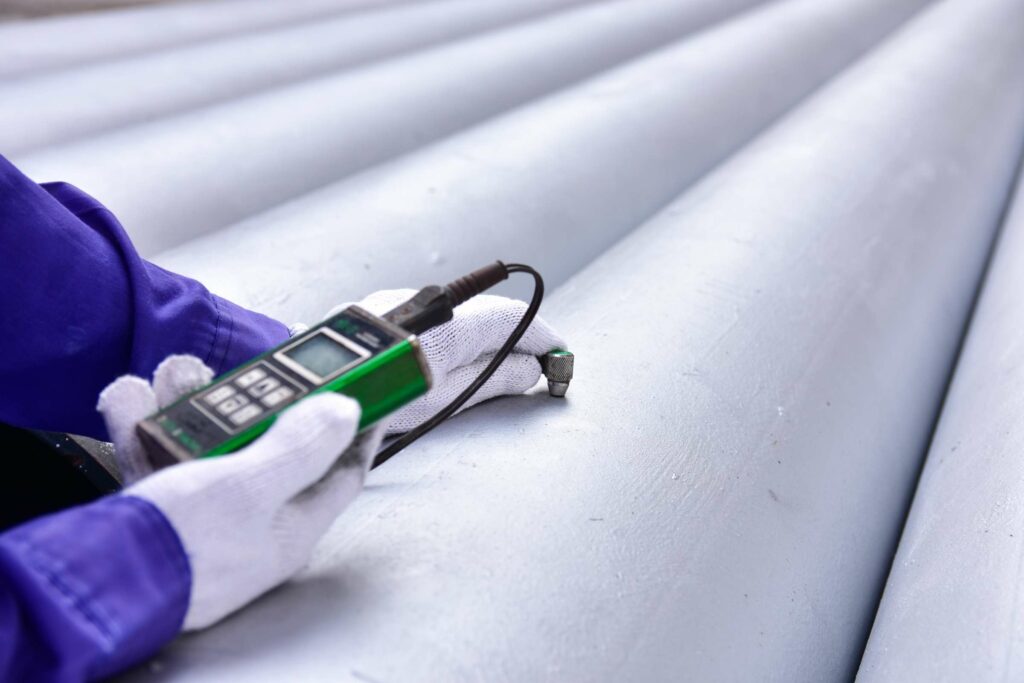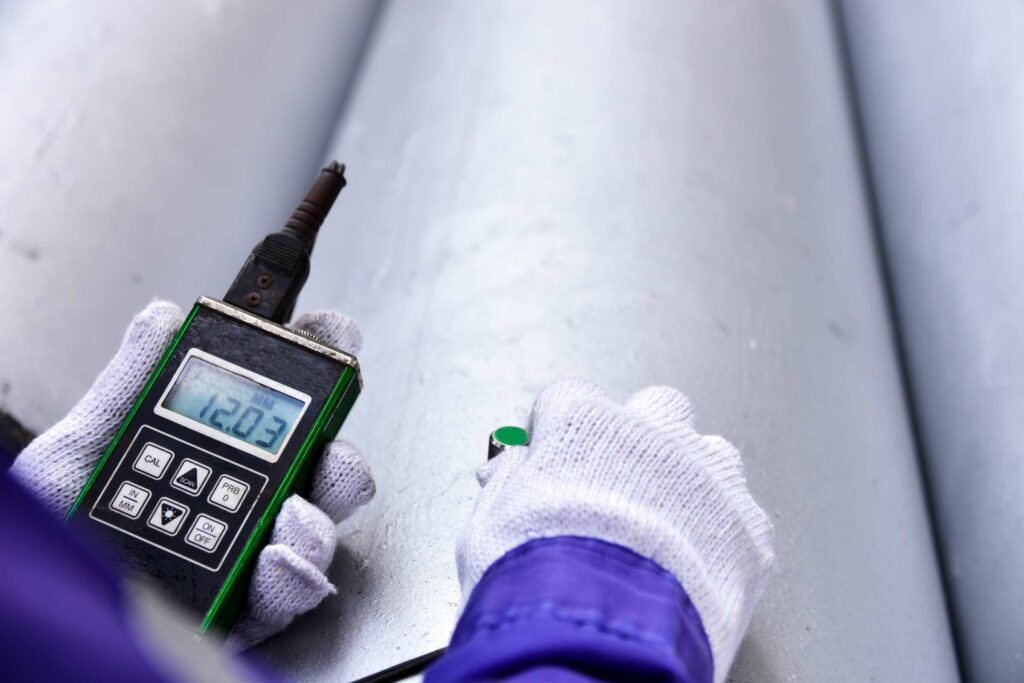A non-destructive testing technique, Ultrasonic Thickness Measurement (UTM) is used in the oil and gas industry to measure the thickness of various materials, including pipes, tanks, and vessels.
Our team of highly experienced certified professionals offers quality industrial ultrasonic thickness measurement in Grande Prairie and the Peace Region. We use the latest technology to ensure you get the information you need.
Our certified professional has 15 years of experience in the NDT industry and practises precision and attention to detail on every job. Through ongoing training, our team stays current on all the latest codes and industry requirements, ensuring a high inspection quality standard.
Call us today, and we can ensure that the components in your project meet industry standards and regulatory requirements.


What is Ultrasonic Thickness Measurement?
In UTM, high-frequency sound waves (ultrasonic waves) are sent through the material being tested. The receiver reports the time the sound waves take to reflect back. This measurement is used to calculate the thickness of the material.
UTM is commonly used to measure the thickness of vessels, pressure piping and storage tanks to ensure their integrity and safety. It is particularly important for detecting corrosion and erosion, which can lead to leaks and other failures. Regular UTM inspections can help identify potential issues before they become major problems, allowing for timely maintenance and repair.
UTM is also used during oil and gas equipment construction to establish baseline readings for future reference when determining short-term and long-term corrosion rates.
What are the Uses of Ultrasonic Thickness Measurement?
Ultrasonic Thickness Measurement (UTM) has various uses. Some of the most common uses of UTM include:
1. Corrosion and erosion monitoring:
UTM is widely used to monitor the thickness of materials, such as pressure piping, tanks, and vessels, to detect corrosion and erosion. This is important for ensuring the safety and integrity of structures and equipment.
2. Quality control:
UTM is used in the manufacturing process of various materials to ensure they meet the required thickness specifications. This helps to maintain quality control and prevent material failures.
3. Maintenance and repair:
UTM is used to identify areas of material thinning and degradation, allowing for timely maintenance and repair to prevent failures.
4. Non-destructive testing:
UTM is a non-destructive testing technique that can test materials without causing damage or altering their properties. This makes it a valuable tool in various industries, including aerospace, automotive, and construction.
Overall, UTM is a versatile and valuable tool for measuring the thickness of materials and ensuring their safety and durability.
What are the Benefits of Ultrasonic Thickness Measurement?
Ultrasonic Thickness Measurement (UTM) offers several benefits, making it a popular technique for measuring material thickness. Some of the key benefits of UTM include:
1. Accurate and precise:
UTM provides accurate and precise measurements of material thickness, allowing for reliable monitoring of material degradation and wear.
2. Fast and efficient:
UTM is a fast and efficient method for measuring material thickness, allowing for quick testing and inspection of large areas.
3. Portable and versatile:
UTM equipment is portable and easy to use, making it versatile and suitable for various environments.
UTM is a reliable, fast, and cost-effective method for measuring material thickness and detecting degradation.